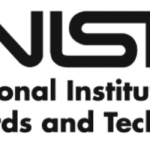Wipro Limited Technologists Discuss Quantum Computing & Planning for Use in Enterprise

(Information-Age) Aravind Ajad Yarra, fellow, Wipro Limited and Saji Thoppil, fellow and chief technologist – cloud and infrastructure Services, Wipro Limited cloud and infrastructure Services, are interviewed here to bring you the basics of quantum computing and demystify some of its unknown facets in today’s evolving scenario. By 2023, 20% of organisations will be seen budgeting for quantum computing projects, compared to less than 1% today.
They believe that while most platform companies that are working to build quantum computers are taking bets on one or the other, enterprises can probably explore both of the models, i.e., universal quantum computers and adiabatic computers (analog and easier to produce and more relaxed with respect to qubit state stability).
Industries that are process-centric, such as pharmaceuticals and oil & gas exploration, are the early adopters. These industries can benefit from quantum computing in complex optimisation problems they need solve from time to time.
Wipro’s Topcoder, for example, is currently working with Fujitsu to run crowdsourced challenging using Fujitsu’s digital annealer to solve real-world problems. Additionally, Airbus has been running open innovation challenges to solve some of its problems using quantum computing.
he business case be made in two parts.
The first enterprise use is to focus on near-term (1-2 years) use cases such as optimisation and encryption by using digital annealers for optimisation and photon-based ASICS for key generation. Digital annealers, or even simulators running on cloud, can solve several practical optimisation problems. Longer term (2+ years) use cases, such as exploring machine learning and unstructured data search as part of centres of innovation and open innovation communities with small investments, but with longer period on returns.



















